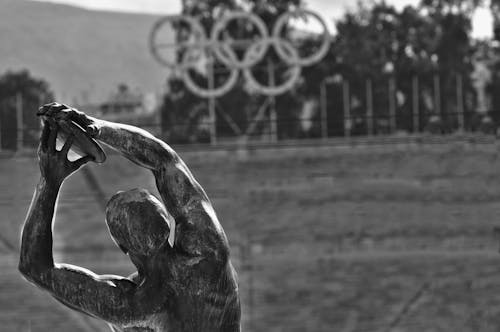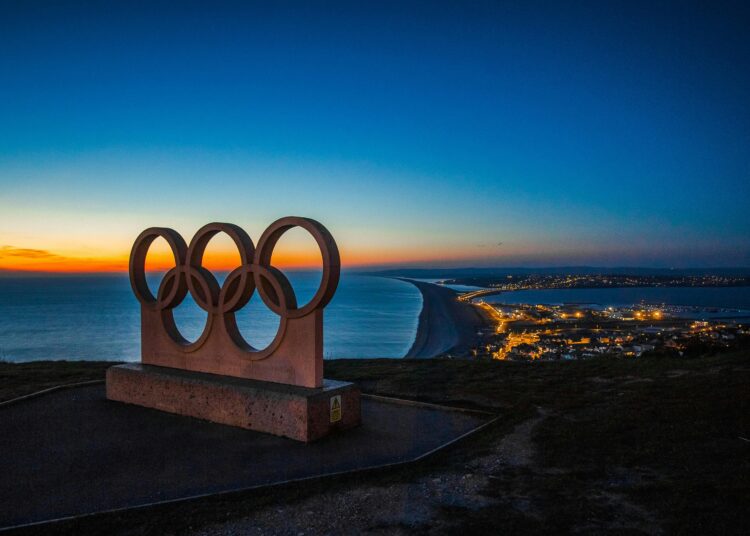From the propagandist spectacles of the 1936 Berlin Olympics to the iconic protest of Tommie Smith and John Carlos at the 1968 Mexico City podium, where they defiantly raised their fists in a Black Power salute, the Olympic Games have transcended mere athleticism to become a reflection of the tumultuous history of the 20th century.
As the world gears up for the Paris Olympics amidst global conflicts from Ukraine to the Middle East, a groundbreaking exhibition in Paris sheds light on the profound social and geopolitical impact of the Games throughout the past century.

Titled “Olympic Games: Mirror of Our Societies,” the exhibition, opening at Paris’s Memorial de la Shoah, meticulously traces the evolution of the Games, from their pacifist origins to their exploitation by totalitarian regimes and their role as a platform for addressing issues of race, colonialism, and discrimination.
Co-curators Caroline François and Paul Dietschy have meticulously curated a comprehensive exploration of the Olympics’ complex history. They emphasize that “Sport is never just sport,” underscoring the exhibition’s mission to provoke critical reflection on societal values through the lens of sports.
The exhibition begins by delving into the founding ideals of the Games by Pierre de Coubertin, highlighting their initial exclusivity and the gradual progress towards inclusivity. However, it doesn’t shy away from addressing uncomfortable truths, such as the colonial subjugation of participants forced to compete under the flag of their colonizers. This aspect of the exhibition prompts viewers to consider the broader implications of nationalism and imperialism within the Olympic movement.
One particularly poignant section of the exhibition examines the appropriation of Olympic venues for wartime atrocities, such as the Vélodrôme d’Hiver’s role in the roundup of Parisian Jews during Nazi occupation. By juxtaposing the lofty ideals of the Olympics with the stark realities of history, the exhibition challenges viewers to confront the complexities of human nature and collective memory.

Notable moments in Olympic history, including the massacre of Israeli athletes at the 1972 Munich Games and the groundbreaking protests of athletes like Tommie Smith and John Carlos, underscore the Games’ capacity for both tragedy and triumph. These episodes serve as powerful reminders of the inherent political and social dimensions of sports, transcending the boundaries of the playing field to become catalysts for change and reflection.
Moreover, the exhibition doesn’t limit itself to historical retrospection. It also addresses contemporary issues of homophobia, disability rights, and the significance of the Paralympics, positioning sport as a lens through which to understand the complexities of the modern world.
As Paris prepares to host the 2024 Olympics, the exhibition serves as a poignant reminder of the power of sports to shape and reflect the human experience. By engaging critically with the ideals embodied by the Games, viewers are encouraged to envision a future Olympics that embodies the principles of democracy, true universalism, and social justice. Through its comprehensive exploration of the Olympics’ multifaceted legacy, the exhibition invites audiences to consider the broader implications of sports on society and to reflect on the role they play in shaping our collective identity.












Discussion about this post